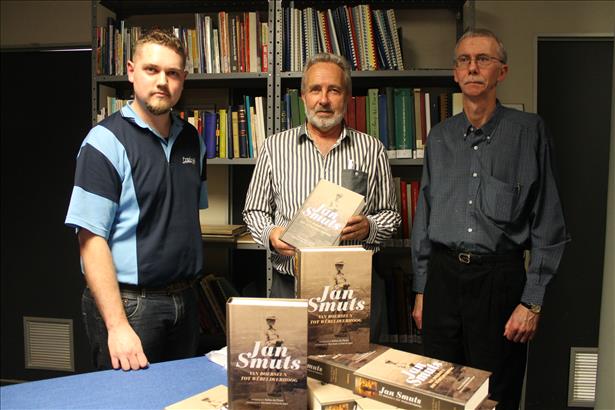Latest News Archive
Please select Category, Year, and then Month to display items
21 June 2019
|
Story Lacea Loader

The University of the Free State (UFS) will be presenting the 2nd UFS Thought-Leader Series in cooperation with Vrye Weekblad as part of the Vrystaat Arts Festival.
Facilitator: Dr Max du Preez, Editor of Vrye Weekblad
Thursday 4 July 2019
Economic and Management Sciences Auditorium, UFS Bloemfontein Campus.
Two panel discussions will take place:
10:00
Panel 1:
How can we fix the South African economy and create jobs?
12:00
Panel 2:
How can we establish a pro-youth and entrepreneurship strategy for South Africa?
Panellists include:
Mr Prince Mashele, Executive Director at the Centre for Politics and Research, political commentator
Ms Annabel Bishop, Chief Economist: Investec
Prof Philippe Burger, Vice-Dean (Strategic Projects):Faculty of Economic and Management
Sciences, UFS
Mr Dawie Roodt, Chief Economist, Efficient Group
Ms Maryana Iskander, Chief Executive Officer of Harambee Youth Employment Accelerator
Mr David Abbey, Rand Merchant Bank
Prof Brownhilder Neneh, Head: Department of Business Management, UFS
Attendance is free of charge.
Enquiries: news@ufs.ac.za | +27 51 401 3422.
Jan Smuts: from country boy to world stage; a reassessment
2017-11-10

At the book discussion of Jan Smuts: van boerseun tot wêreldverhoog;
'n herwaardering, were from the left: Con Robinson, Protea Bookshop;
Prof Kobus du Pisani; and Prof André Wessels from the Department
of History at the UFS.
Photo: Leonie Bolleurs
Prof André Wessels from the Department of History at the University of the Free State (UFS) was one of 20 co-authors of Jan Smuts: van boerseun tot wêreldverhoog; 'n herwaardering – a book compiled under the leadership of the general editor, Prof Kobus du Pisani, from North-West University. This unique history book deals with the different themes in the life of Smuts, rather than describing the events chronologically.
South Africans are almost afraid of their own history nowadays ... and yet another history book is being launched. Does it make sense? Yes, for two reasons.
The monster in the dark
One of the ways to overcome fear is through knowledge. The monster in the dark disappears when one understands that the street lights and tree branches are creating interesting shadows. The more one knows about something, the less scary it becomes.
The Greek Bible
This was possibly also Smuts’s approach. Knowledge was his passion, and even today he is considered as one of the best students of the University of Cambridge. Although very few people really understand his holism theory, Smuts experienced the complex world in a very simple way – as one – not as lots of different pieces functioning independently of each other.
Smuts could have made a success of any of his interest fields – law, botany, literature, and philosophy. However, politics laid three wars on his doorstep. While he is regarded as a militarist by some, he was actually a peacemaker. He played a role in the establishment of the League of Nations, and later the United Nations. Incidentally, he continued to read the Greek Bible while on commando during the Anglo-Boer War.
A colourful character
The second reason for yet another Jan Smuts history book is his fascinating humanness. Time should be spent on colourful characters such as this. It is worthwhile hearing the story of someone who had such a great impact locally and internationally – good or bad.